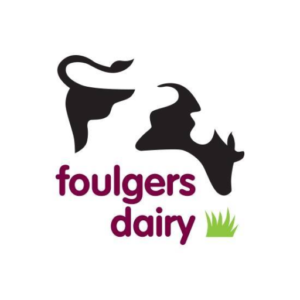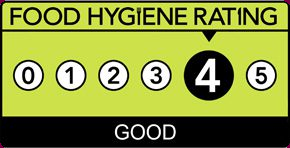Pasteurised vs. raw milk, which is better?
Raw milk is just milk that has not undergone the standard pasteurisation process. Raw milk advocates argue that it is healthier and easier to digest than pasteurised milk. In addition, it includes many of the enzymes, vitamins, and minerals lost during the pasteurisation process. Nevertheless, some claim that raw milk is unsafe since it is more likely to be infected with harmful bacteria and viruses that can cause illness. In this article, we will explain what raw milk is, how it is created, its health benefits and potential concerns, and how to buy raw milk.
Shop our Raw Milk and Dairy Products here >
The difference between raw milk and pasteurised milk
Raw milk is simply milk that has not undergone pasteurisation. Developed in 1822, pasteurisation was named after French scientist Louis Pasteur, a pioneer in microbiology. During the process of pasteurisation, milk is heated to temperatures between 65 and 75 degrees Celsius for up to 30 minutes. The purpose of this process is to remove any harmful bacteria that may cause illness or injury if consumed. Despite pasteurisation’s benefits, however, it also eliminates many important microorganisms necessary for good health.
By contrast, raw milk undergoes a process called thermisation, where the milk is still heated to sanitise the milk but at a lesser temperature compared to pasteurisation to avoid killing healthy microorganisms. To maintain raw milk’s safety and quality, dairy farmers must employ other techniques and safety regulations. Milk sold in a shop or supermarket is almost always pasteurised. However, there are a few dairy farms around that produce and sell raw milk.
The nutritional benefits of raw milk
The pasteurisation process removes a lot of health benefits from raw milk. The following are some advantages of raw milk over pasteurised milk:
• Raw milk is an excellent source of vitamins, enzymes, proteins, and minerals that are good for our health. By consuming raw milk, you can lower cholesterol, protect your bones, and increase your vitamin B and C levels.
• There is evidence that raw milk can boost antioxidant activity due to its proteins. By increasing glutathione levels in the spleen, the production of white blood cells increases, which in turn boosts the immune system.
• Raw milk contains antimicrobials such as immunoglobin, lactoferrin, and xanthine oxidase. Not only do these chemicals help strengthen immunity and combat diseases, but they can also extend the shelf life of milk, allowing it to be stored for months longer than pasteurised milk.
• In addition to lactic acid and enzymes, raw milk boosts the number of lactobacillus in your digestive tract. Besides improving digestion, this may also reduce stress and anxiety, especially for lactose-intolerant people.
• According to research raw milk consumers may be less likely to develop allergies, asthma, and eczema. This may be because milk contains RNA molecules that enhance and control the immune system.
• Strengthens the body’s organs and glands, along with the eyes and arteries, to improve the appearance and health of your complexion.
• In general, as raw milk matures, it produces stronger bacteria and cultures. Although it develops a sour taste that may not be to everyone’s liking, it does not spoil and can be even healthier for the body.
• Finally, raw milk may have a richer taste than pasteurised milk. In raw milk, the natural microorganisms add to the taste, which is typically lacking in pasteurised milk.
Why is there controversy surrounding raw milk consumption?
While there are obvious health benefits to drinking raw milk, there is an ongoing controversy over how safe raw milk is to consume. The debate surrounding raw milk is largely influenced by examples from the nineteenth century. During those times, dairy business health regulations were inadequate, and the environment around dairy production was generally unclean. As a result, animals became ill and produced milk tainted with viruses and deadly germs, which were then spread to everyone who consumed it, frequently resulting in epidemics of disease. Through pasteurisation, the possibility of transmitting diseases such as tuberculosis from animals to humans was greatly reduced. In contrast to the low health and safety standards back then, dairy farmers today must adhere to much higher standards when producing raw milk and other dairy products.
Is raw milk safer or riskier than pasteurised milk?
With the historical risks of raw milk consumption in mind, how safe is it to drink compared to modern pasteurised varieties? It is important to keep in mind that raw milk has been around for thousands of years, while pasteurisation is a relatively new process. In addition, the poor hygiene conditions of the nineteenth century have largely been eliminated and farms must now conform to strict health regulations for the wellbeing of all involved. It is considered advisable to avoid raw milk if you have a weakened immune system, are pregnant or nursing, elderly, young, or have chronic diseases. However, there is no truth in the notion that raw milk is intrinsically unsafe; when manufactured and handled carefully, it offers numerous benefits that pasteurised milk cannot.
Where can I buy raw milk?
It is not possible to purchase raw milk from a supermarket or store in the United Kingdom, it must be bought directly from a dairy farm. These dairy producers must comply with strict labelling regulations and undergo regular health and safety testing to sell raw goods. For raw milk, you can either go to a farm that produces it or order it from a milk delivery service, such as Foulgers Dairy.
Here at Foulgers, we have an agreement with Fen Farm Dairy to supply and distribute their raw milk and milk products directly to our clients. For more information about our products and services, please either visit our online shop or give us a call.

